At first glance it is an unremarkable spectacle, a couple of feet of oily steel pipe sticking out of a scorched African plain. But the potential significance of the borehole we were shown at Lokitipi in Northern Kenya can't be overstated.
Scientists have found water here. Lots of water. Enough, in fact, to meet all of Kenya's needs for well over half a century. It's clean and it's accessible. In a country regularly blighted by drought, that's a momentous discovery.
Last night, in a hotel in Nairobi, I pored over charts of the area with Alain Gachet, the charismatic Frenchman who made the discovery. "This is a game-changer for all the countries in this region", he told me, "I'm going to make them rich!".

They are big words, but his excitement is infectious and understandable. Monsieur Gachet believes similar underground water reserves lie beneath much of Africa. He has the technology, he says, to find them and tap them.

On the face of it, his system is remarkable only in it's simplicity. He takes existing satellite, radar and geological maps of the area and layers them on top of each other to crate one all-encompassing study of what lies beneath the soil.
An oil man by trade, he used the technique to pinpoint mineral reserves across Africa, now he's applying the same technology to find water. And to most Africans that's far more valuable than any oil or gold he could locate.

You could be forgiven, at this point, for thinking this all sounds too good to be true. How many times, after all, have we heard of "African breakthroughs" which come to nothing? The key here, as ever, is in good management.
If the Kenyan government can embrace this system, fund the drilling and maintain the infrastructure there's no reason this couldn't change millions of lives for the better.

Tribespeople who walk for days in search of rain could irrigate their land, settle and farm. Towns could build up around lush new pasture. A scorched, largely forgotten corner of Kenya could be transformed. And that could just be the start.
Of course there will be predators out there. Companies and countries eager to buy up swathes of fertile land for their own selfish interests but Kenya is now run by a technocrat government, the ministries led by experts in each field rather than "get rich quick" politicians.
Most Kenyans believe their country is on the up at last and the corruption which could have blighted this scheme in the past is on the wane.

UNESCO, the United Nations' scientific wing, have certainly embraced the system. They're preparing to use the technology to search for new water under the soil of Kenya's neighbours, too. They are, quietly, very excited by what's happening. Carefully worded briefing documents insist "the system's potential can't be over stated".
These are exciting times for this region. The start of something special? Well, let's hope so, we'd all drink to that! A massive aquifer that holds enough water to meet all of Kenya's needs for 70 years has been discovered, ITV News can reveal.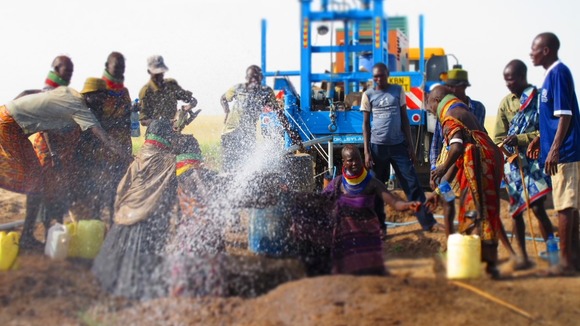

The pool, which was found more than 300 metres underground, is so large you could pour Loch Ness into it approximately 25 times.

What is an aquifer?
- It is an underground layer of water-bearing material, such as gravel, sand and silt.
- Water can be extracted from the materials by using a well.
The newly discovered Lotikipi Basin Aquifer could provide water to Kenya for 70 years.
But just as importantly the aquifer is replenished from distant mountains. So it should never run dry, assuming it is managed properly.
– ABOU AMANI, UNESCOWe now have a tool that could not only help Kenya, but it could help other countries facing the issues of water scarcity.
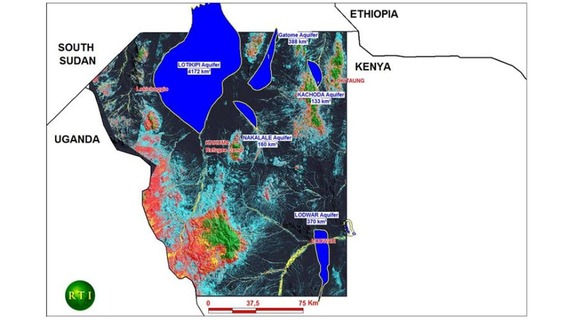
Lotikipi in numbers:
- The aquifer is approximately 100 km (62 miles) by 66 km (41 miles).
- It has a surface area of 4,164 km2.
- It contains an estimated 200 billion cubic metres of fresh water.
- Lotikipi alone holds 900% more than Kenya's current water reserves.
UNESCO and the Kenyan government - funded by Japan - have been using satellite, radar and geological technology in a bid to find supplies of water.
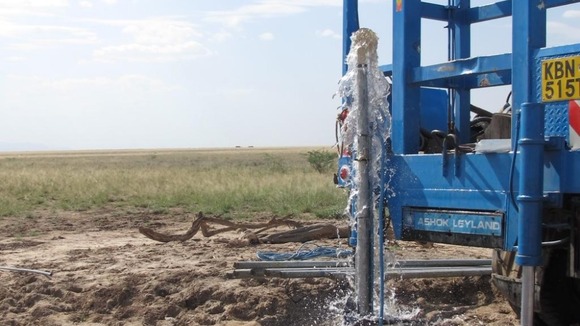
Earlier this year, they discovered five aquifers in north west Kenya and began exploratory drilling on two. As well as Lotikipi, a much smaller pool of water was found in Lodwar.
The discovery of Lotikipi will be officially announced on Wednesday (11 September) when the Kenyan government will also reveal how they plan to use the resource for the good of the country.
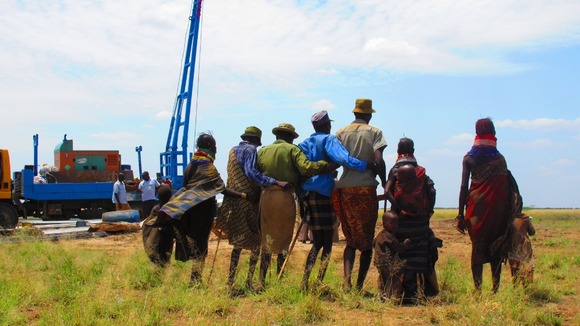
UNESCO is also exploring possible new water sources in other Africa countries such as South Sudan, Ethiopia and Kenya.
Abou Amani, a UNESCO scientist who is part of the team who discovered the water told ITV News:
– ABOU AMANI, UNESCO.I'm not saying this could solve all of the problems because from finding water to providing water to the population is another step because we need to have investment, we need to put in place infrastructure and so on. But we have seen the system and the fact water is there, and that is extremely important and it could be a game changer within the country.
ITV News captured the moment water was struck in Kenya.


Five acquifers have been found in all, the biggest of which could supply all of Kenya's water needs for the next 70 years at least, and much longer if managed properly.


The aquifer was found 300 metres below the ground in Northern Kenya.

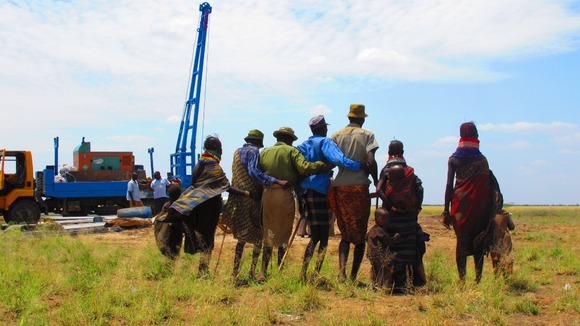

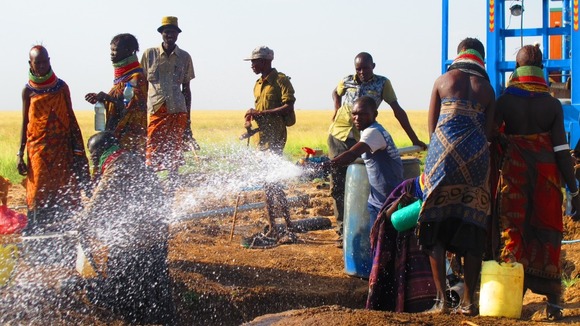
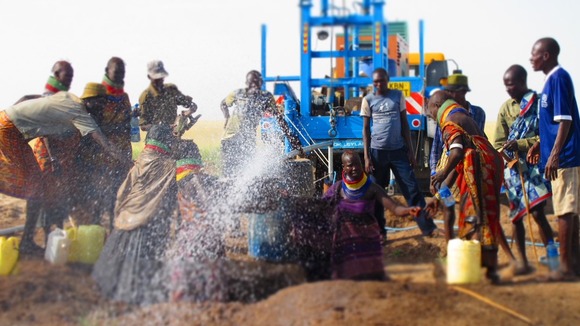
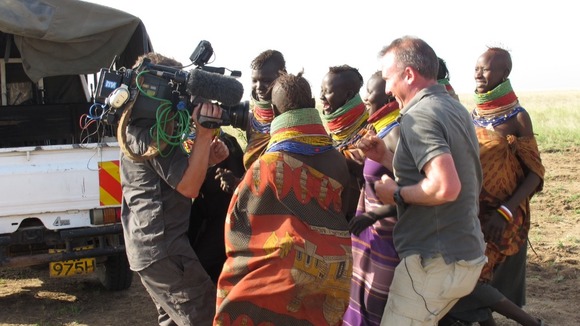
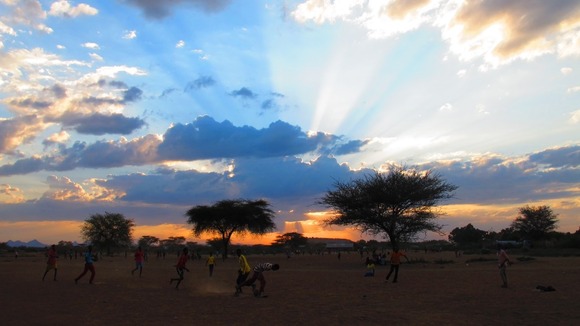

Good news again, now all roads lead to Turkana county
ReplyDelete